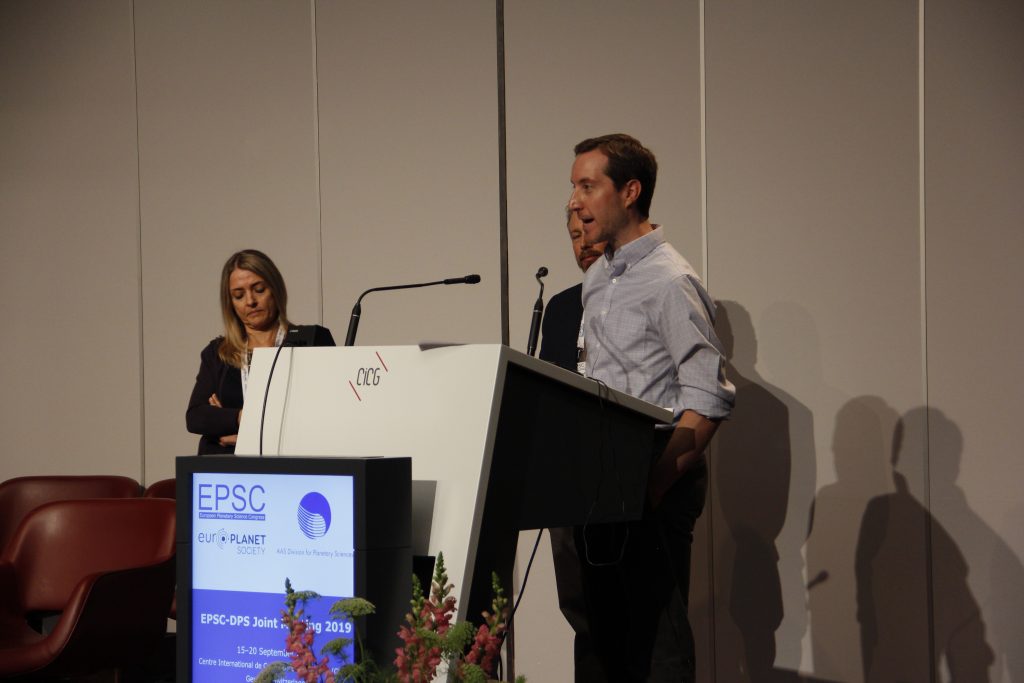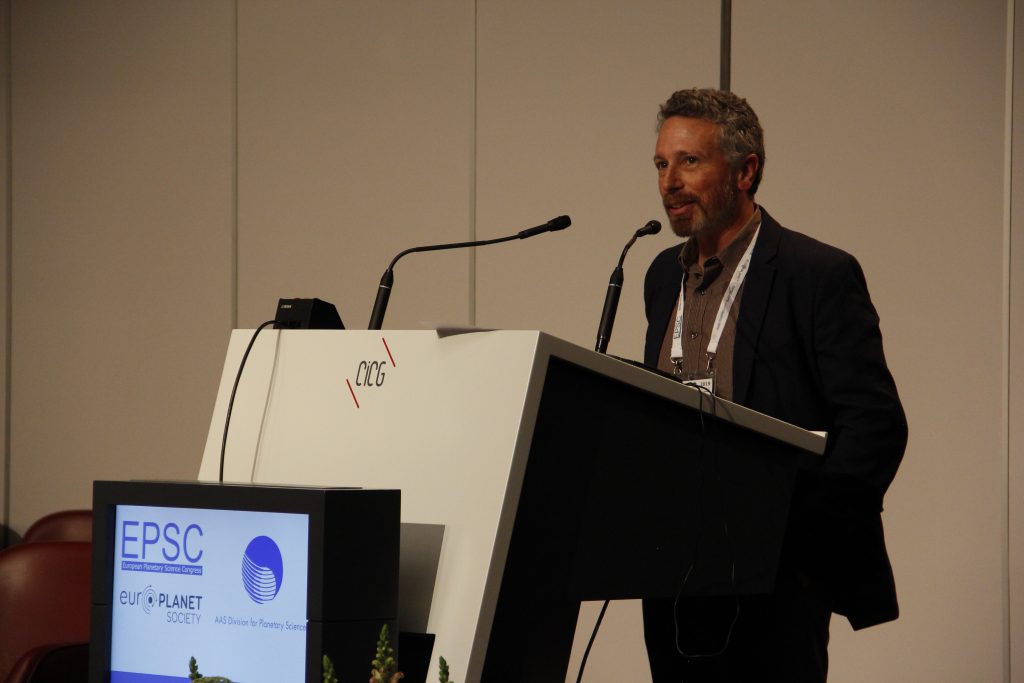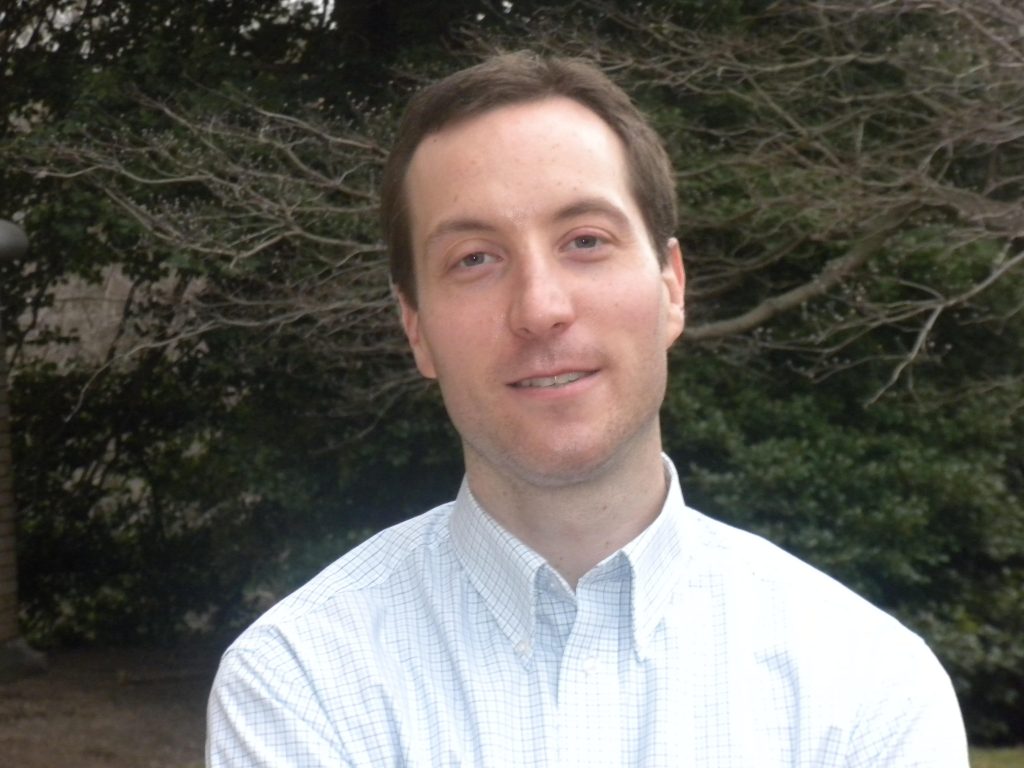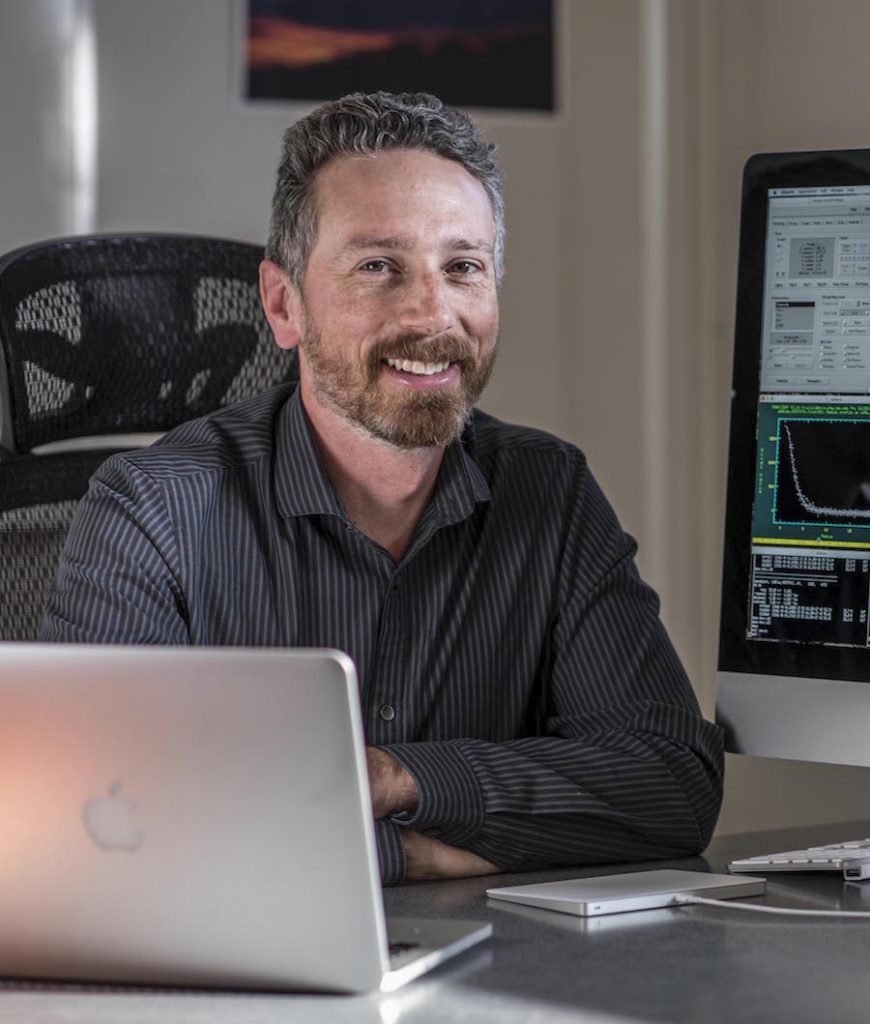2019 Farinella Prize Awarded to Scott Sheppard and Chad Trujillo
Prof Scott S. Sheppard, an American astronomer working at The Carnegie Institution for Science of Washington, and Prof Chad Trujillo, an American scientist working at Northern Arizona University, have been awarded jointly the 2019 Paolo Farinella Prize for their outstanding collaborative work for the observational characterisation of the Kuiper belt and the Neptune-trojan population. The award ceremony was hosted today at the EPSC-DPS Joint Meeting 2019 in Geneva, Switzerland. The ceremony included two lectures by the winners on “Completing the Inventory of the Solar System”.
The annual prize was established in 2010 to honour the memory of the Italian scientist Paolo Farinella (1953-2000) and, each year, it acknowledges an outstanding researcher not older than 47 years (the age of Farinella when he passed away) who has achieved important results in one of Farinella’s fields of work. Each year the Prize focuses on a different research area and in 2019, the ninth edition was devoted to the trans-Neptunian objects, including, among other objects, the Kuiper belt the edge of the Solar System.
Prof Sheppard and Prof Trujillo have discovered a significant number of detached and distant trans-Neptunian objects, unveiling the structure of the distant Kuiper belt and pointing out, for the first time, the directionally-dependent distribution of their orbits. Their work has opened up new hypotheses on the formation and evolution of the Solar System, including that there might be a very distant undiscovered giant planet in our Solar System.
Prof Sheppard received his BA in Physics at Oberlin College, Ohio and his PhD in astronomy at the University of Hawaii. He is currently a Faculty Member at the Department of Terrestrial Magnetism at the Carnegie Institution for Science in Washington.
Prof Trujillo received his BA in Physics at the Massachusetts Institute of Technology and his PhD in astronomy at the University of Hawaii. He currently holds the position of Assistant Professor at the Department of Physics & Astronomy at Northern Arizona University.
Before receiving the Prize, Prof Sheppard commented: “I’m very honored to be awarded the Paolo Farinella Prize in planetary research. Paolo was an inspiration and it is great his memory lives on with this prize.”
Prof Trujillo added: “I know that our research is well-known, but there are so many excellent scientists studying the outer Solar System that I was astonished and humbled that the committee chose us to receive this prestigious award.”
About the Paolo Farinella Prize
The Paolo Farinella Prize (http://www.europlanet-eu.org/paolo-farinella-prize) was established to honour the memory and the outstanding figure of Paolo Farinella (1953-2000), an extraordinary scientist and person, in recognition of significant contributions given in the fields of interest of Farinella, which span from planetary sciences to space geodesy, fundamental physics, science popularization, and security in space, weapons control and disarmament. The winner of the prize is selected each year on the basis of his/her overall research results in a chosen field, among candidates with international and interdisciplinary collaborations, not older than 47 years, the age of Farinella when he passed away, at the date of 25 March 2000. The prize was first proposed during the “International Workshop on Paolo Farinella the scientist and the man,” held in Pisa in 2010, supported by the University of Pisa, ISTI/CNR and by IAPS-INAF (Rome). The first “Paolo Farinella Prize” was awarded in 2011 to William Bottke, for his contribution to the field of “physics and dynamics of small solar system bodies.” In 2012 the Prize went to John Chambers, for his contribution to the field of “formation and early evolution of the solar system.” In 2013, to Patrick Michel, for his work in the field of “collisional processes in the solar system,”. In 2014, to David Vokrouhlicky for his contributions to “our understanding of the dynamics and physics of solar system, including how pressure from solar radiation affects the orbits of both asteroids and artificial satellites”, in 2015 to Nicolas Biver for his studies of “the molecular and isotopic composition of cometary volatiles by means of submillimeter and millimeter ground and space observations,” and in 2016 to Dr. Kleomenis Tsiganis for “his studies of the applications of celestial mechanics to the dynamics of planetary systems, including the development of the Nice model”. In 2017, to Simone Marchi, for his contributions to “understanding the complex problems related to the impact history and physical evolution of the inner Solar System, including the Moon”. Finally, in 2018, to Francis Nimmo, for his contributions in our “understanding of the internal structure and evolution of icy bodies in the Solar System and the resulting influence on their surface processes”.
Images

Credit: S. Sheppard/Europlanet/ G. Mantovani
https://www.europlanet-society.org/wp-content/uploads/2019/09/Sheppard-1.jpg

Credit: C. Trujillo /Europlanet/ G. Mantovani
www.europlanet-society.org/wp-content/uploads/2019/09/Trujillo.jpg

www.europlanet-society.org/wp-content/uploads/2019/09/Sheppard.jpg

www.europlanet-society.org/wp-content/uploads/2019/09/Trujillo.jpeg
Science Contacts
Prof. Scott Sheppard
Department of Terrestrial Magnetism
The Carnegie Institution for Science
5241 Broad Branch Rd. NW
Washington, DC 20015
ssheppard@carnegiescience.edu
Prof Chad Trujillo
Department of Astronomy and Planetary Science
Northern Arizona University
AZ 86011, S San Francisco St,
Flagstaff, Arizona
chad.trujillo@nau.edu
Media Contacts
Anita Heward
EPSC Press Officer
+44 7756 034243
anita.heward@europlanet-eu.org
epsc-dps-press@europlanet-society.org
Livia Giacomini
EPSC Press Officer
epsc-dps-press@europlanet-society.org
Adriana Postiglione
EPSC Press Officer
epsc-dps-press@europlanet-society.org
Shantanu Naidu
DPS Press Officer
dpspress@aas.org
During the meeting, the EPSC-DPS Press Office can be contacted on +41 22 791 9617.
Further Information
Europlanet
The Europlanet Society, launched in September 2018, is an organization for individual and corporate members to promote the advancement of planetary science and related fields in Europe. The Society provides Europe’s planetary science community with a platform to exchange ideas and personnel, share research tools, data and facilities, define key science goals for the future, and engage stakeholders, policy makers and European citizens with planetary science. The Europlanet Society is the parent organisation of the European Planetary Science Congress (EPSC).
Europlanet Society website: www.europlanet-society.org
EPSC-DPSC 2019 Joint Meeting 2019 website: www.epsc-dps2019.eu
DPS
The Division for Planetary Sciences (DPS), founded in 1968, is the largest special-interest Division of the American Astronomical Society (AAS). Members of the DPS study the bodies of our own solar system, from planets and moons to comets and asteroids, and all other solar-system objects and processes. With the discovery that planets exist around other stars, the DPS has expanded its scope to include the study of extrasolar planetary systems as well.
The AAS, established in 1899, is the major organization of professional astronomers in North America. The membership (approx. 7,500) also includes physicists, mathematicians, geologists, engineers, and others whose research interests lie within the broad spectrum of subjects now comprising contemporary astronomy. The mission of the AAS is to enhance and share humanity’s scientific understanding of the universe, which it achieves through publishing, meeting organization, education and outreach, and training and professional development.

